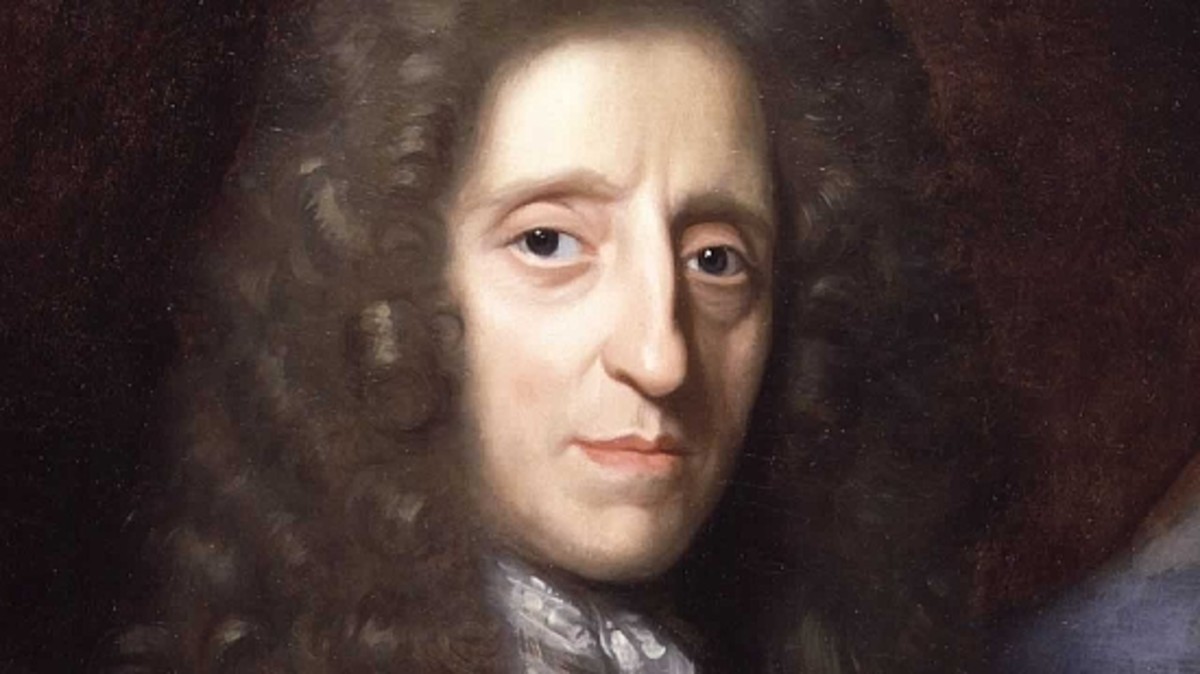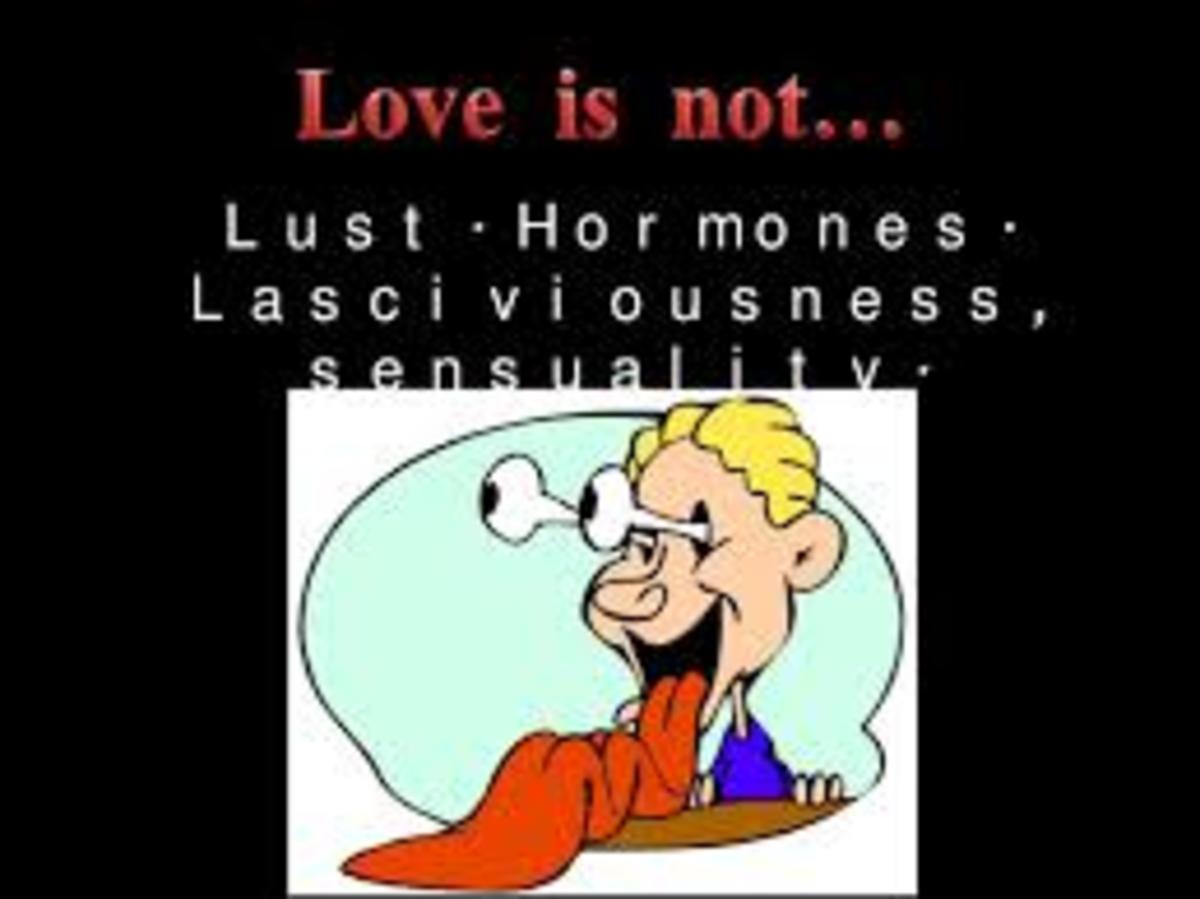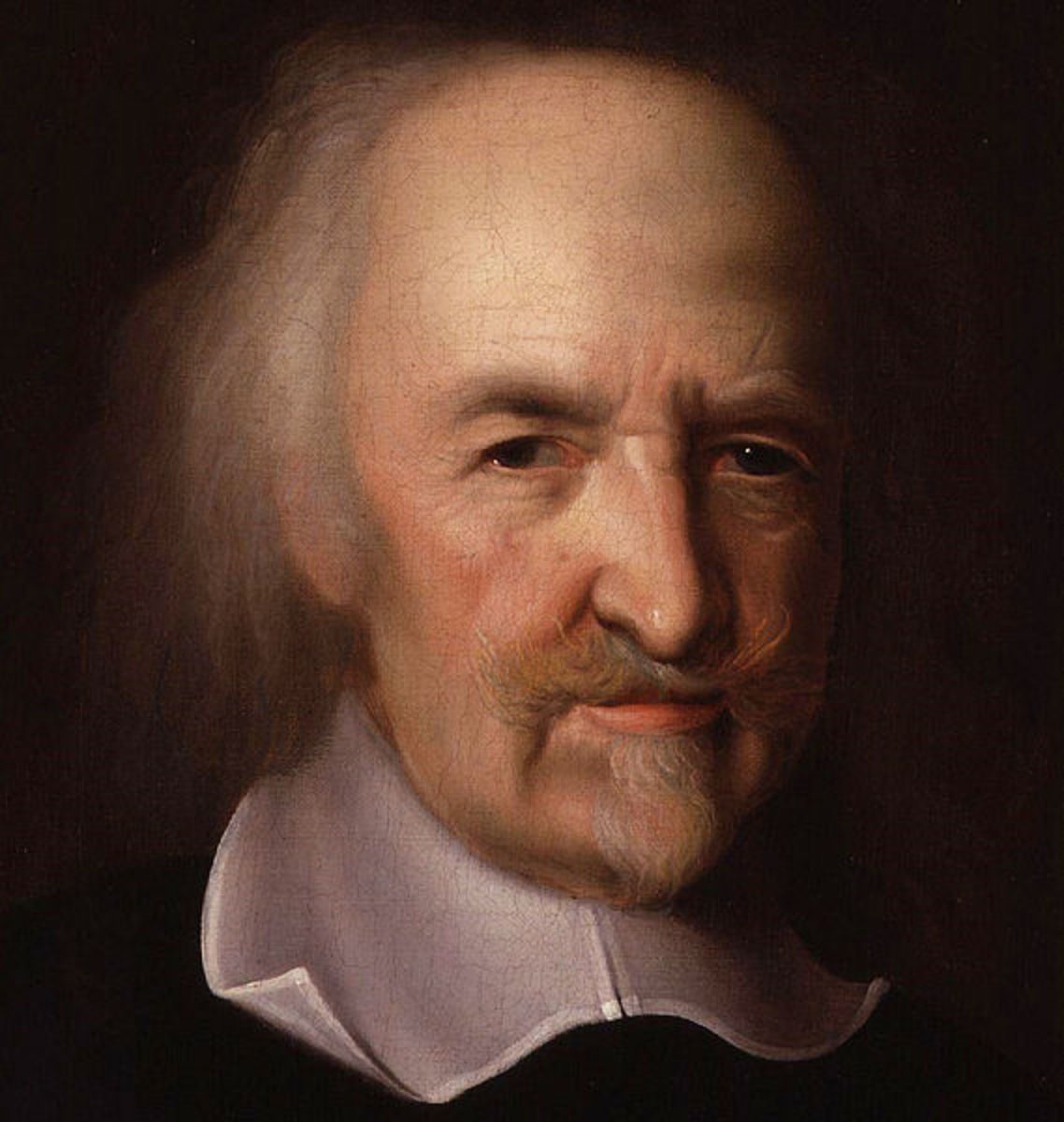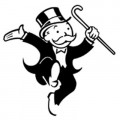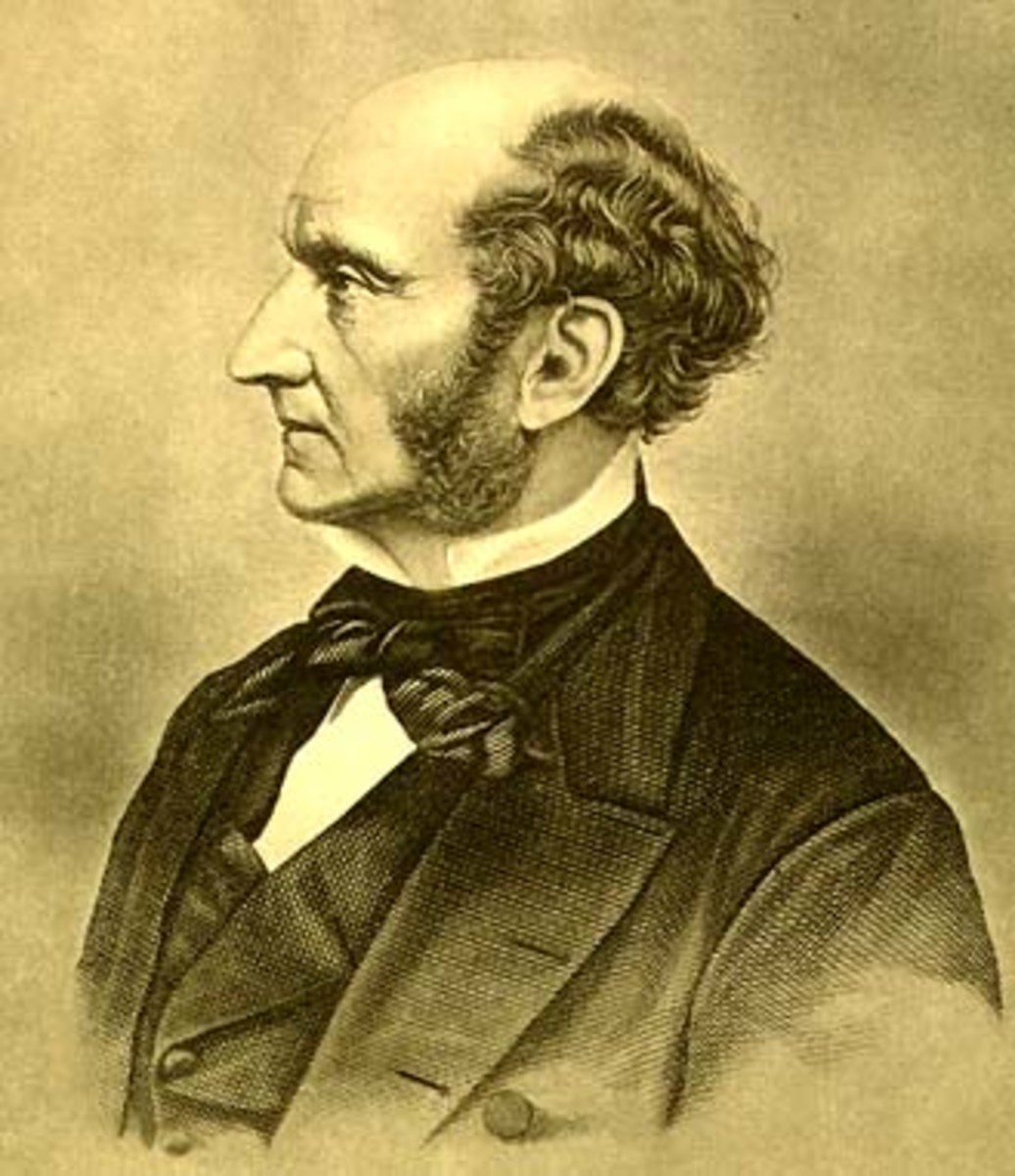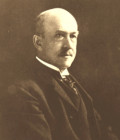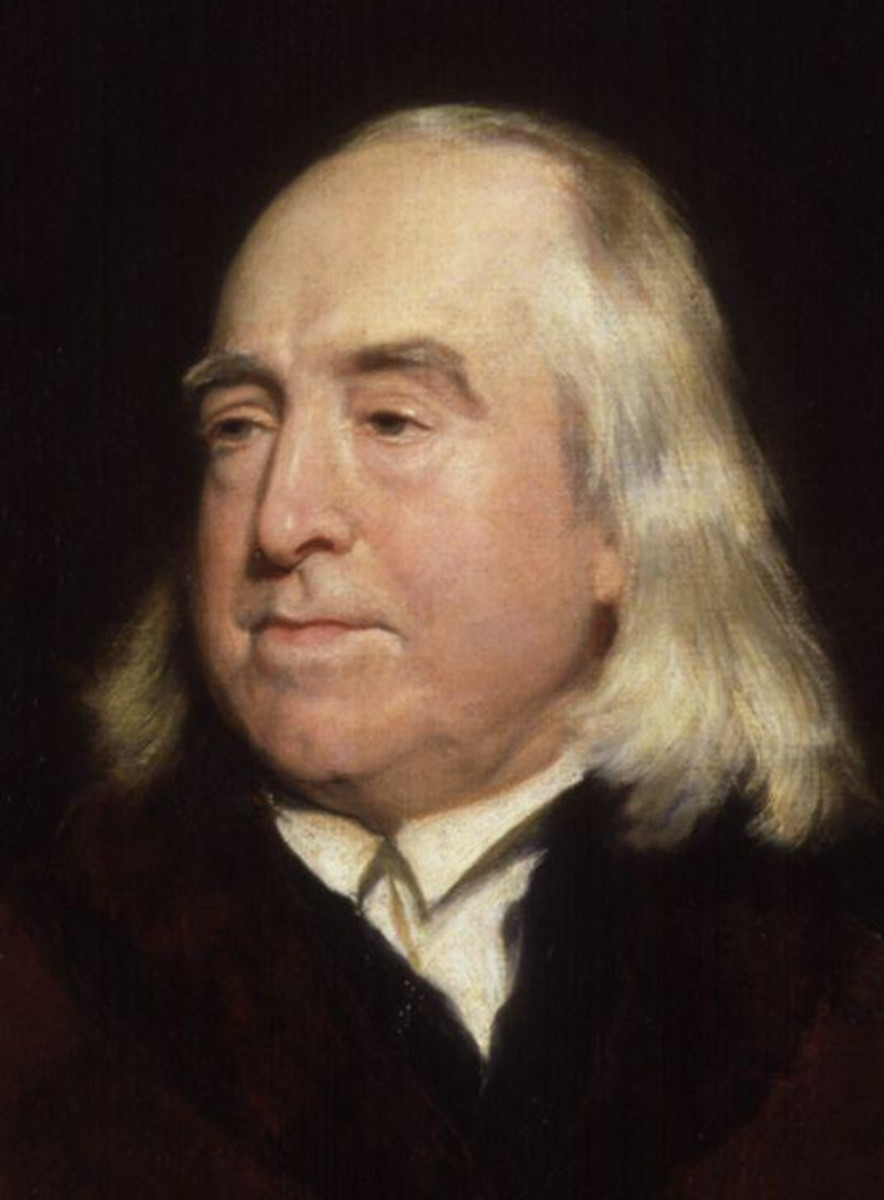Machiavelli and The Prince

Machiavelli's Ideas
In The Prince, Niccolo Machiavelli presents an interesting view on governing a state. Machiavelli believes the Prince(leader) should be the only authority that should determine every and any aspect of the state and put in effect a policy which would serve to his best interests. These interests were gaining, maintaining, and expanding his political power (Machiavelli, 57).
Machiavelli’s understanding of human nature was a complete contradiction of what everyone believed and taught. Machiavelli strongly promoted a physical society and felt morality was not necessary but in fact stood in the way of an effectively governed principality (Machiavelli,57). Although, in some cases, Machiavelli's suggestions seem harsh and immoral one must remember that these views were intended for a ruler and as such may seem cruel to the general public at the time.
Machiavelli presented revolutionary and unique way of expressing what a prince should do for his state. Many of his ideas comprises of being a prince that understands his people, politics, and the art of war.
Human Nature
In Machiavelli’s time, everyone believed that an individual had much to offer to the wellbeing of the state, such as seen in the general embracing of humanism at the time “emphasizing the potential for individual achievement”(Spark, 1).
Machiavelli was quick to mock human nature through this in ways. He truly believed that humans are not ready to serve their country unless there is a special benefit to them as individuals. For Machiavelli, man is dominated by his passions. He is “acquisitive, shortsighted and imitative.” His desires are unlimited and bear little relation to his abilities (Machiavelli, 116). Not only is the “supply of possessions limited, but man's short-sighted, restless nature makes him constantly tire of what he has and desire new and more interesting things” (King, 87).
This selfishness leads to conflict between those who desire to dominate and those who desire to be free from domination. This domination over others is itself the most powerful of emotional desires as Machiavelli believes. The conflict is conducted both on the civil level between men and on the international level between groups of men through games of politics and diplomacy.
Machiavelli further goes on to question the loyalty of the citizens and advises the Prince that men never keep their word to you so you should never keep your word to them (Machiavelli,146). Machiavelli expresses that “a prince cannot rely upon what he observes in quiet times…when death is far distant [citizens] all wish to die for him…but in times of trouble, when the state needs his citizens, then he finds but a few(Machiavelli, 154). It is these times of trouble that a Prince should be on the lookout for man’s true nature of self-preservation as “there will always be in doubtful times a scarcity of men whom he can trust (Machiavelli, 145).
It is the Prince’s duty, then, to keep order and “adopt a course that his citizens will always in every sort and kind of circumstance have need of the state and him, and then he will always find them faithful( Machiavelli 154). It then falls that it is the Prince’s duty to appease man’s nature such as to rule over him, may it be through love or hate. However, Machiavelli did not feel that a Prince should mistreat the citizens. Machiavelli never advocates cruelty or other vices for their own sake. He advocates them “only in the interests of safeguarding the state, which, in Machiavelli’s view, is a kind of ultimate good in its own right”(Spark).
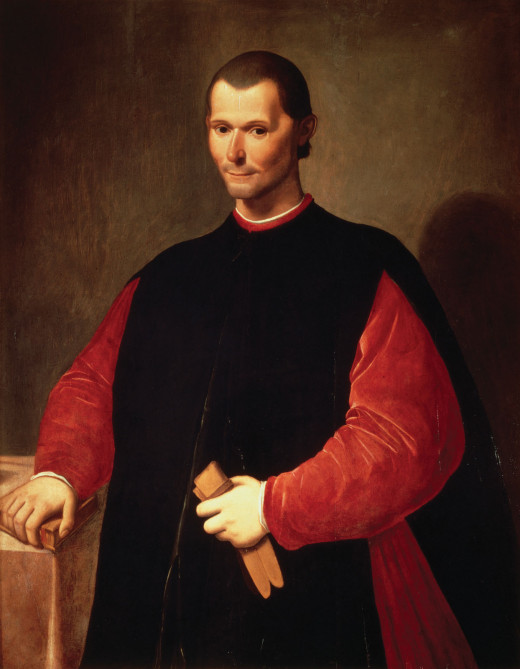
Fear and Love
If a prince cannot be both feared and loved, Machiavelli suggests, it would be better for him to be feared by the citizens within his own principality “whether it is better to be loved than feared, or the reverse. The answer is, of course, that it would be best to be both loved and feared. But since the two rarely come together, anyone compelled to choose will find greater security in being feared than in being loved” (Machiavelli, 67). He makes the generalization that men are, "ungrateful, fickle, liars, and deceivers; they shun danger and [they] are greedy for profit"(Machiavelli, 115-116).
He characterizes man as being self-centered and not willing to act in the best interest of the state in times of need and that “their affections” are simple things that “can be won and lost” (Spark). Thus, people can only be held through fear, but not hate of their leader. Love endures by a bond “which men, being scoundrels, may break whenever it serves their advantage to do so; but fear is supported by the dread of pain, which is ever present” (Machiavelli, 67). As love and hate seem to play there part in the holding of the citizen, what of the nobility and foreigners?
In this, Machiavelli relies on his understanding and views of politics. What better way to keep the upper class and foreigners in line then by way of age old trickery, cunning, and deceit? "A wise prince then should act in like manner, and should never be idle in times of peace, but should industriously lay up stores of which to avail himself in times of adversity; so that, when Fortune abandon him, he may be prepared to resist her blows" (Machiavelli 75).
The Prince
Ahead of the Game
A prince should always be steps ahead of his opponent, for it can only be in prediction and preparation that anything can be won or avoided. Machiavelli’s The Prince reads almost like a chess manual.
The pons (citizens) serve for the greater good, giving up their lives for the survival of the whole, yet at the same time, without pons there is no hope for the redemption of the Queen or an erection of a barrier for the King (prince). The King, at the center, would be nothing without his kingdom of fighters. He must be cunning and deceptive in order to survive an advance. And what is politics and war but a game of chess where the winners rules? But the art of this cunning and force can be attributed to the ever famous lion and fox.
A Prince must be able to have two sides in these dealings of politics and diplomacy “ one by law, the other by force…one without the other is not durable…a prince, therefore, being compelled knowingly to adopt the beast, ought to choose the fox and the lion; because the lion cannot defend himself against snares and the fox cannot defend himself against wolves” (Machiavelli , 119). A fox is defenseless against wolves; a lion is defenseless against traps.
A prince must learn to act like both the fox and the lion: he must learn, like the fox, how to frighten off wolves and, like the lion, how to recognize the traps (Machiavelli, 119-120). In dealing with people, a prince may break his promises when they put him at a disadvantage and when the reasons for which he made the promises no longer exist (King, 36). In any case, promises are never something on which a prince can rely, since men are by nature wretched and deceitful. A prince should be a master of deception. A Prince must “have a mind ready to turn itself accordingly as the winds and variations of fortune force it, yet…not to diverge from the good…but, if compelled, then to know how to set about it” (Machiavelli, 120).
A prince must be keen enough to play the complex politics of court; to seem at all times to conduct a sense of sprezzatura. Someone that others can look up to, yet not be overly suspicious. The art (and depth) of sprezzatura is “defined by a man’s power: the stronger and wiser he is, the gentler his manner and the more circumspect his speech; the more, in other words, his true self is hidden” (McKay). Which seems to be the definition of the prince, he is a fox amid sheep and must keep the sheep from suspecting.
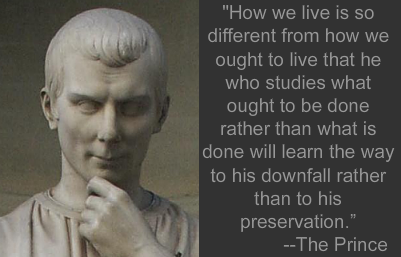
More on "The Prince" and Machiavelli
- Commentary: Machiavelli: Still Shocking after Five Centuries | The National Interest
Of all the writers in the “realist” canon—from Thucydides and Hobbes to Morgenthau and Mearsheimer—it is Niccolo Machiavelli who retains the greatest capacity to shock. In 1513, banished from his beloved Florence, Machiavelli drafted his masterwor - 11 surprisingly apt lessons from Machiavelli's The Prince - The Week
- At 500, Machiavelli's 'Prince' Still Inspires Love And Fear : Parallels : NPR
Niccolo Machiavelli is synonymous with political deceit, cynicism and ruthlessness. He called his most famous work, The Prince, a handbook for statesmen. An exhibit in Rome celebrates the 500th anniversary of what's still one of the most influential - Machiavelli’s The Prince: Still Relevant after All These Years | BU Today | Boston University
A Price Must Hold onto [his] Power
Machiavelli also goes on to describe that one must have the power to hold on to his state. Machiavelli believed that proper government was a cyclical event, with three stages. The “first, tyranny, was the beginning of the new regime, an overthrow of the current government”. The second stage, the republic regime, “began once authority was imposed and stable”. The third and final “stage was effective government”, which would lead to the people having more leisure time, eventually leading to idleness and corruption(King, 124-134).
Once this third stage was reached, there would once again be a need for tyranny to restore order among the people. Machiavelli saw a need for harsh government overthrow periodically to keep the peoples from becoming to relaxed in their duties and daily lives. There is definite evidence of this is found in the Rimirro de Orco example (Machiavelli, ch 7) that harsh government can then pave the way for a more liberal regime.
Machiavelli describes three ways to hold states that have been accustomed to living freely under their own laws. The “first is to devastate them. The second is for the conqueror to occupy them. The third is to allow the state to maintain its own laws, but to charge taxes and establish an oligarchy to keep the state friendly”(King, 87-94). The third option has its advantages because the newly imposed oligarchy will “work hard to secure the authority of the conquering prince within the conquered state because it owes its existence to the prince and cannot survive without his support”(Spark, 87).
Thus, as long as the goal is not to destroy the other state, it is easiest to rule it through the use of its own citizens. Machiavelli seems to believe that this can be used an imposed on both the existing state when taking over from a previous prince and when taking over another land through war. Machiavelli believes these methods to be true as otherwise the prince could be opening himself up to rebellion, which is never a good thing.
Niccolo Machiavelli's Biography
Good Laws are a result of a Good Military
Machiavelli believes that good laws follow naturally from a good military. His famous statement that “the presence of sound military forces indicates the presence of sound laws” describes the relationship between developing states and war in The Prince (Machiavelli, 98).
Machiavelli believes that “a prince must have no other objective, no other thought, nor take up any profession but that of war, its methods and its discipline, for that is the only art expected of a ruler. And it is of such great value that it not only keeps hereditary princes in power, but often raises men of lowly condition to that rank” (Machiavelli, 99).
Machiavelli reverses the understanding of war as a necessary element of the development of states, and instead describes that successful war is the very foundation upon which all states are to be built. Much of The Prince is devoted to describing exactly what it means to conduct a good war: how to effectively fortify a city, how to treat subjects in newly acquired territories, and how to prevent domestic insurrection that would distract from a successful war (Machiavelli, 97-101). But Machiavelli’s description of war is more than just the use of the military; “it comprises international diplomacy, domestic politics, tactical strategy, geographic mastery, and historical analysis” (Ross, 123). Machiavelli advises that a prince should at all times be ready for war, and those times of peace are simply more free time to plan for such assurances to come about.

The Two Types of War
What may make this book seem to have been evil to many of the day is the fact that Machiavelli gives advice on “two different kinds of war, one caused by the ambition of princes or republics and the other caused when an entire people desire to overthrow the society of another people. Thus there is a qualitative difference between wars waged for limited and unlimited objectives.
The limited political objectives involve the seizure of some territory and or domination of another group or the unseating of a particular ruler” (Sloan). In total war, Machiavelli believe that the objective is the complete destruction of the opposing state and, if possible, the riddance of the people of that state as to keep opposition out. The destruction of a total population for the involvement in war seems barbaric. When seen and done, many of what Machiavelli wrote about was seen as barbaric. “If you can hold on to power without bad qualities, all the better; but if you cannot, indulge in them with no scruples. Some ways of conduct that are considered virtuous lead to your downfall; others that are supposed to be wicked will secure your safety and well-being” (Machiavelli, 4).
The End will Justify the Means
Machiavelli wrote that in government,“ the end justifies the means” (Machiavelli, 129). He went on to express that sacrifices have to be made for the best of the state. These could come in the forms of cruelty, war, and other seemingly bad things. The prince ought to do what he needs to do in order to maintain his position as the prince. This is his virtue. What this requires him to do will depend upon circumstance. Sometimes he will be able to appease both his personal conscience while keeping himself in power, during other times he will have to sacrifice his own sense of what is good just to keep himself in good standing with whomever is powerful at the time.
But, Machiavelli believed that the people would come to see this and accept the fact that it was just in the end depending on the circumstance at the time. People were not so sure of this fact.
They called him out for being cruel to even say such things (King, 49). But, this book was not really intended to be read by commoners, it was intended to be read by those in power or those aspiring to come to power. Pain and evil are real and also necessary to in order to rule affectively.
Machiavelli states that laying down a solid foundation is important in building a successful future for the city/state. Similar to the quotes from Kingdom of Heaven ;"There will be a day when you will wish you had done a little evil to do a greater good." By doing evil and causing pain, it might be hurtful at the time, but in the long run, a good prince will be setting up a solid foundation for future successors. This concept was of a little pain was needed to rule the state did not stand well.
Niccolo Machiavelli's "The Prince"
- Machiavelli's "The Prince" ---Free ebook
Nicolo Machiavelli, born at Florence on 3rd May 1469. From 1494 to 1512 held an official post at Florence which included diplomatic missions to various European courts. Imprisoned in Florence, 1512; later exiled and returned to San Casciano. Died at
The Prince through Machiavelli
Machiavelli offered up new ideas for the running of a state for a prince. While the purpose of this book was for the hopes of being reinstated into politics at the grace of the Medici, which did not occur as Machiavelli would have liked, this book went on to be one of the greatest political works since Pluto.
What Machiavelli wrote about is not something that one often thinks on. The public is not always aware of the workings of such things and this book dives right into the heart of the manner. Machiavelli expresses that in order to run such a state ,one must know the people and rule them with fear, yet not to the point of hate, as hate is something that a prince would not find beneficial from his people. People are the foundation of all things in government and must be treated as such or the government can fall under their displeasure of the fact.
Politics are also a finally tuned dance that a prince must learn to concur with both cunning and force to keep in power. Without that ability to manipulate any and all, a prince will fall under the control of his advisors or risk losing his hold on his power. War is everything that a prince should eat and breathe during his rule as without this knowledge, all can be easily lost in times of war, or even in peace when such things are not suspected.
Machiavelli believes that a prince should study history and advance use for war as in doing so he can one day possible save his life. And, even after war a princes job is not complete, he must learn to take over such a land and keep it from rising up to suppose and suppress its new leaders. Machiavelli wrote this book as a guide for new and current princes as for them to rule without to may hardships and for them to be able to keep their power. While people of the time were not very accepting of Machiavelli’s work, it can be attributed to much of a shock and the new ideas that were lane at their feet. Though to call the book evil and to have it banned due to its wanting to separate the law and church are more of the critics it received in the day and not as much in this current time where his writing is very much loved and read my many.

